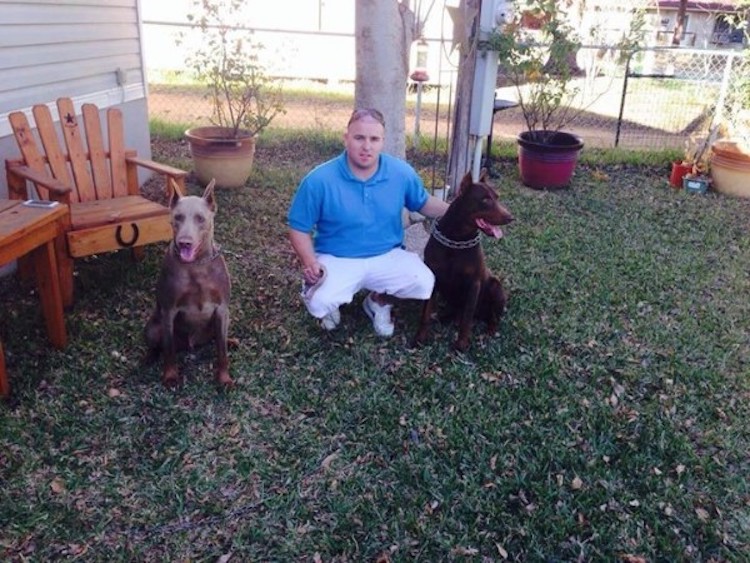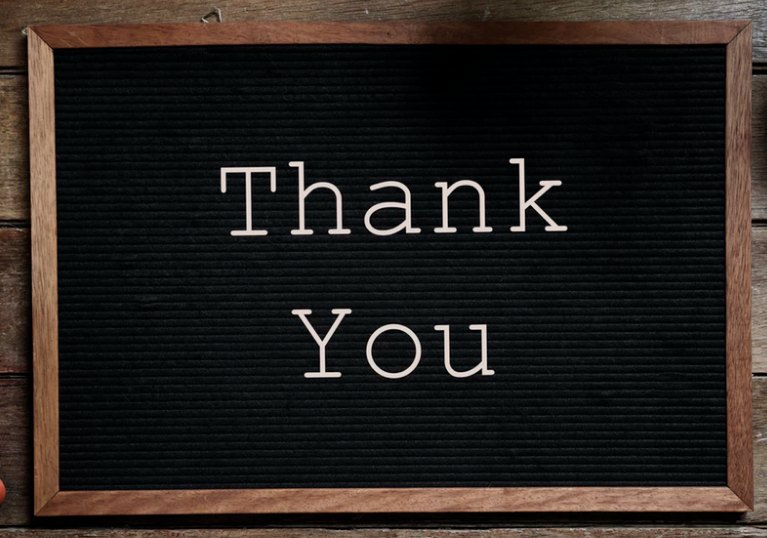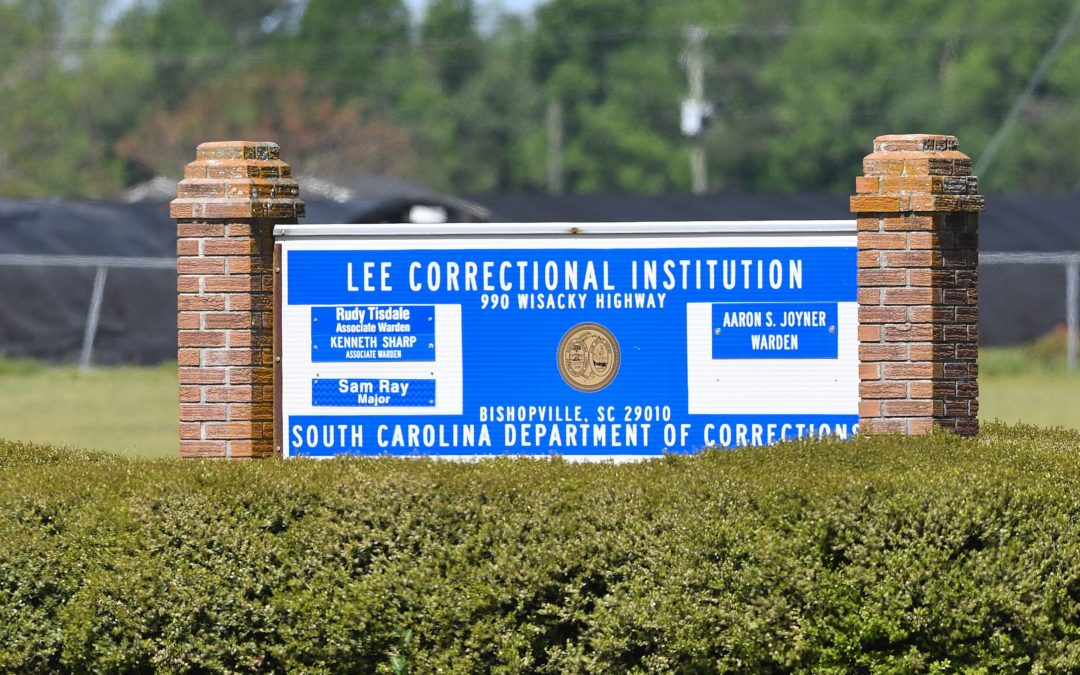
by Melissa Bee | May 3, 2018 | From the Inside, Interviews, News
Thanks to Jared Ware for this thorough coverage. We are publishing his interview with three SC inmates in its entirety with his permission.
The deadliest incident of violence in a United States prison in a quarter century took place at the Lee Correctional Institution in South Carolina on April 15, 2018.
According to multiple reports, including SCDC Director Bryan Stirling’s own, prison guards and EMTs made no attempt to break things up or lend medical aid from moment the fight commenced until hours after it was over, while imprisoned people were beaten and stabbed to death. Seven people were killed and dozens were injured, with at least twenty two requiring hospitalization.
On April 22, I interviewed three individuals from various prisons inside the South Carolina Department of Corrections. One of the prisoners identified himself as a member of Jailhouse Lawyers Speak, a group of imprisoned human rights advocates that has made national calls to action for a prisoner-led strike in response to the conditions they feel are truly responsible for the violence and hopelessness within prisons across the United States. The strike is expected to begin on August 21st, 2018.
Throughout our conversation, these three individuals, who are identified only as D, S, and E to protect their identities and prevent retaliation by prison officials, highlight the impacts of policies pushed by President Bill Clinton’s administration and implemented by states across the country. They also point to the dehumanization of prisoners and challenge our conception of “gangs,” which does not take into account the ways in which incarcerated people are forced to create their own collective means for safety, survival, and camaraderie in a situation where hope is the scarcest commodity.
They also urge the public to reconsider the nature and source of violence within prisons and the absence of human dignity and a rehabilitative environment within our nation’s prisons. They present actionable solutions to mitigate some of the harm caused by prisons on our ultimate path toward shedding carceral responses to legitimate societal needs.
As I write this introduction on May 2nd, 2018, South Carolina prisoners have confirmed that all Level 2 and 3 facilities have remained on a statewide lockdown since April 15th. This means people imprisoned in facilities have been denied any freedom of movement, regular access to showers, recreation, or meals outside the confines of their cells.
We grant permission for individuals and news organizations to republish this interview in its entirety for their audiences. It is imperative that we deepen conversations around the causes of violence in prisons and the real impacts of incarceration on all people, inside and outside the walls.
Editor’s note: this transcript has been lightly edited for clarity.
Jared: Firstly, for context for folks who are reading this, there have been a lot of things that have gone down in South Carolina prisons over the last year or two, if you guys could lay down some of that context for people, because I think a lot of people don’t understand some of the things that prisoners throughout South Carolina have been dealing with and how those conditions might contribute to prisoners really feeling a sense of hopelessness?
D: I’m going to take you back a little step here, to 1996 at least. I’ll cover it a little bit, and I’ll be as brief as possible. Prior to Bill Clinton’s Prison Litigation Reform Act, anti-terrorism act, these acts that went into full effect in 1996, initiated what is known as the 85% or Truth In Sentencing [note]Truth In Sentencing Laws were part of a national movement in the mid-nineties to end parole and increase the length of prison sentences, as well as ensuring that offenders for certain offenses served at least 85% of their sentences. Although it was a national movement, here are some details about South Carolina’s laws: http://www.ncrp.info/StateFactSheets.aspx?state=SC[/note] throughout most of the states inside this nation today. It’s not just necessarily something that incubated inside the South Carolina, it was actually national. There was a domino effect, okay? But in 1996, specifically, the reason why I’m pinpointing that is because at that particular point in the state of South Carolina, there was no such thing as a natural life sentence in the department of corrections. There was no such thing as a forever-type sentence, where individuals thought that they weren’t going to be able to get out.
Even if you had a violent offense, or a labeled-violent offense, you still had something known as a work release date. You still would have some type of eligibility to go to work release, and that also meant the eligibility to go to work at some place on the street, or go home even on the weekends in the state of South Carolina. They had opportunity to make state pay. [note] According to Jailhouse Lawyers Speak, “state pay” was a system where the state paid every prisoner, for example, $5.45 an hour for up to 18 hours every two weeks. It was enough to buy real hygiene products, a few snacks, and smokes. Prison officials took it away during the national changes that were rolled out in the mid-nineties.[/note] during that particular time period. Even when you [were] at what was known as the max yard. These yards [were] clearly open, everybody could roam and move around free.
But when 1996 set in, and you had this mindset that started to kicked in, that was known, as Hillary Clinton called [it], as locking down these “super predators.” They called it also the War on Drugs, which I call the war on the black and brown community. All these things is playing into effect at that particular time period, and that created the environment inside.
We found fences starting to be wrapped into the prisons, we found prisoners that was labeled as violent offenders, was sent into these fences, and caged into buildings all day. We found that the food started deteriorating, we saw the clothes removed, and we saw the ways that [imprisoned people] could make money removed out of the system. There was no longer any type of state pay. Even though state pay was very minimal, it was still an opportunity to buy a bar of soap or a Honey Bun or something like that. We saw that visitation was being restricted.
It was just a host of things that started being incubated. And then the hopelessness set in. Because what happened then is we started having these life sentences coming through under 85 percent, where prisoners knew they were never going to see daylight again. We started having what we call “football numbers:” 80, 100, 150 years coming through 85 percent [time served, where prisoners knew they were] never going to see daylight again.
So this is where actually a lot of the problems started accumulating. And not only that, but actually education was removed by the prison system. Any type of Pell Grants, all that was gone. Education, technical colleges, everything was removed. So that’s a little bit of a picture of what kind of started to shape the environment back here.
Jared: Thank you, so that changed obviously the overall conditions of how prisons across the country changed and sort of the hopelessness that set in. Can you talk to me a little bit though of some of the specific things that happened in South Carolina over the last couple of years?
D: And this is when the most sadistic mindsets start to set in. Prisoncrats… And I’m going to [let] the brother answer that one.
S: So for one, as the brother was just telling you with the “football numbers,” prisoners got a lot of time to serve, but actually with nothing to do. When they took away all the privileges, they took away a lot of the programs. Stuff like that, it leads to just standing around with nothing to do, except to indulge in negative behavior, and reactionary behavior, and just all different forms of escapism–whatever they can do to pass the time.
They drug test you so they can take away your privileges. Why do they need drug testing inside the prisons? People are already in here doing time, it’s irrelevant. I can see if somebody’s getting ready to go home for parole or something like that and you’re going to test them, but just to constantly test them, that’s kind of like a waste of money. They always waste their funds on things they don’t need to waste their funds on.
We have no means of supporting ourselves because there’s no state pay. Because we have no state pay, we have no way to eat. As the brother said, even though it was just a little bit of money, but it still was something. You still could buy some hygiene [products].
When they do lockdown, they’re supposed to give you showers Mondays, Wednesdays, and Fridays, whatever the lockdown be for. But they don’t ever honor it. They want to do one cell at a time, and it’ll take you a whole week before you get a shower. You have some prisons where the water system is messed up. Particularly at Lieber [Correctional Institute], their water system has been messed up forever. When you flush the toilet or pour your water, it smells like rotten eggs. They say it has sulfur in it or whatever, but it eats up the actual metal, and causes mold and stuff to be all over the prison.
If they were to go do a tour through that prison right now, and they go all the way from the lock-up to the yard, the ceiling is falling in, metal hanging down, it’s dripping all over the place, mold is all over the place, people who are in prison for 15-20 years are dying from cancer. But they don’t have no cigarettes inside, you feel me?





We’re confined to a cell a lot. They do a lot of counts and the counts always last for a long period of time. The purpose of counting is to make sure that we’re here. In all reality, they should just count us and then let us back out for recreation. If you count from the time you eat dinner on a Friday night to your next meal on a Saturday, it’s 17-18 hours before you get your next meal. And on the daily basis, you’re talking about 12 to 13 hours from when you get your first meal to your next meal, that’s almost like a half a day, that’s a long time.
So you eat up all your [food purchased from the] canteen, which forces you to go the canteen and spend a lot of money on a bunch of a junk that they price gouge, that’s super high, but this money is coming from their family members who are out there working hard to help support you as well.
They have completely in my eyes mastered the art of dehumanizing prisoners.
D: One of the things that has not fully been addressed in South Carolina is the nature and culture of disrespect from the officers inside the South Carolina Department of Corrections, as well. They have completely in my eyes mastered the art of dehumanizing prisoners. Once again, we have to keep in mind they intentionally went into an overdrive of taking the prisoners clothes. Not only taking the prisoners clothes, cutting the prisoners hair the same way, had it to where you can’t have your money in your pocket, just a number of things to take away your individuality. And in the process of taking away your individuality, they begin to treat you as if you were garbage. What I mean by treat you as garbage, just by dehumanizing us it makes it easier for them to abuse us, and this abuse a lot of times takes place as physical abuse.
We had in the Super Max Units out in Columbia, South Carolina maybe about a year or two ago, guards bumrush a prisoner inside his cell, stab him up. We’ve always had a number of incidents with regards to them cuffing prisoners, then cut prisoners up, slamming prisoners on their heads. In some cases we’ve had some mysterious deaths, some hangings that prisoners are clearly not comfortable with labelling them as hangings on these maximum security prisons.
We’ve also had incidents where prisoners, when he speaks of recreation, understand something about this recreation a lot of places and a lot of areas right now, prisoners are no longer getting rec at all. It’s like every blue moon before we even see any sunlight or daylight to be able to get rec. What we are finding is that, that itself is causing a lot of attitude problems. A lot of aggressiveness.
When we talk about the food, we don’t get any fruit, no real fruit anyway. At one time they actually had salad bars; they removed all of that over two decades ago. Now you get nothing. Some of the food is labeled “not for human consumption.” So these are normal things that we are actually dealing with inside the prison system.
For visitation, there’s no contact with your visitor, with your loved ones. One kiss in, one kiss out. Rather than a hug, sit down, embrace each other. Be in the comfort of each other’s company. We’re finding that is moving further and further away, and I’m very fearful that we’re moving to the stage of video visits very soon, in the very near future.
Jared: Talk a little bit about the angle of this around technology. Bryan Stirling has been for at least a year now, probably more, he’s been on this kick about getting cell phones out. You know there was this sort of fairly high profile escape less than a year ago, and they blamed cell phones for that. And they’re also blaming this riot on cell phones. They’re talking about phone jammers. So just talk a little bit about cell phones in relation to the prisons and what they mean or provide to prisoners and how realistic some of these narratives or fears that are being stated by SCDC are.
S: SCDC’s main reason for not wanting the phones inside the prison system is because the phones got camera access, video access, and the phones can expose the things that they do. When they’re using extreme force – the same way people are using cell phones out on the street when they’re catching certain things that cops aren’t supposed to be doing and stuff like that – see they can be exposed, they can’t hide when we’ve got the phones.
The prisoners utilize the phones to communicate with their family members. The phone system that [SCDC has], the phone prices are entirely too high, nobody would use that. They get money off it, too, and everybody knows that. And prisoners use the phone as a means of staying connected to their families, fathers staying connected to their children. Some fathers back here are raising their children from prison by staying in contact with them.
So SCDC just wants the phones out of the prisons because they don’t want to be exposed. They don’t want the videos of the fights and stabbings to be shown. There’s other things prisoners are shooting videos of. They’re showing videos of the brown water, they show videos of the mold inside the buildings. They show videos of the prisoners who’ve been dead in the bed for two hours and the guard ain’t come and check on the man yet. So it’s a fly on the wall for them, that’s why they don’t want them in here.
Jared: I’ve heard some reporting on how high the death numbers are from South Carolina over the past couple years, but I’ve also heard from some prisoners that they believe the death numbers are actually much higher than what’s being reported. For example, I’ve had a prisoner tell me that, even though SCDC is officially stating death toll numbers in the teens over the last year, and these numbers are very high based on national averages, that the numbers are actually higher but they believe SCDC is only reporting certain kinds of deaths.
S: Yeah they are only reporting certain kinds of deaths, not including some deaths that they have caused themselves. And just to give you an example, they have a cell in the area they call the RHU (Restrictive Housing Unit) that’s supposed to be the area they put people that get in trouble or whatever. And they’ve got a cell that’s called a CI (Crisis Intervention) cell. That’s where they strip you, make you get butt naked you got no clothes on, no nothing, and when they do bring you something, they’ll bring you a suicide blanket only.
So you had a guy years ago, where he said he was going to kill himself, so they put him in the CI, so the guy told one of the Lieutenants later on that night he was cool. The Lieutenant gave the man a sheet and then they say the man hanged himself. That’s what they said. But by policy and by rule, nobody is supposed to have [any] sheets in [any] CI cell and everybody know that, especially the Lieutenant, who’s a supervisor. So that’s their fault. He was a mentally ill patient. That’s on them. So of course you know when they write it up, or they give the information to the public or his family, they [aren’t telling those] people that.
D: Absolutely. I’d like to add to that as well. One of the reasons why the number is probably higher as well is they’re dealing with medical neglect. So I’ll give you an example. I saw a guy that fell out of his seat. And the guard looked over the guy, but the prisoner was the only one that responded and started to give the guy mouth to mouth resuscitation. Well, come to find out the guy who was giving him resuscitation, his face started turning blue. Five minutes later the nurse arrives, and they lean over and they tell the guy and tell the officer they’d been giving mouth-to-mouth the wrong way. I honestly sat there and saw them kill this man for that particular incident.
And we’ve also seen incidents where guys fall out, no medical treatment whatsoever. I consider those direct murders, as well, of the state. When staff are failing to respond or respond and say, “Oh, you’re faking it, you’re not having a heart attack,” and you fall out and die right there. We saw that happen several times as well. So this also would account for why some of the prisoners would say that these numbers definitely would be higher, after they are witnessing some people being allowed to die, the way that they’re being allowed to die.
If I can, I wanted to kind of backtrack on the question you asked earlier on cell phones.
Jared: Sure.
D: First things first, I always have to understand the basic fundamental nature of today’s prison system throughout this nation is slavery. We understand that it’s based on the 13th Amendment of the United States constitution, we can’t get around that. There’s a profit business, so it’s all about profit, it’s about the profit margin. That’s what fuels the numbers in the prisons across this nation. It’s no different in the state of South Carolina.
Technology, with prisoners having access to communication, the phone business has lost billions literally, in this state right here alone. Billions! They have put in certain rooms in here, they’ve put these machines in called kiosks, they are getting no play. This is where you’re supposed to be able to send out literally something like text messages to your people. They thought this was going to be a booming industry, nobody is using it. This is a loss of revenue.
We have these same phone companies that are investing in the department of corrections, literally for free, giving them equipment to find cell phones. Giving them equipment to search our families at the front gate when they come in to visit us, giving them equipment to monitor the gate areas. So they’re giving them this. This wasn’t just a free handout, but this was because [they] need to make money, [they] need to get these phones out of the system. That has always been understood.
Even now, I’m hearing that, even with the jamming equipment that Bryan Stirling is requesting and supposed to have a hold of for Lee County right now, I think the company is called “Tech something,” I’m not really sure exactly, but my understanding is that the parent company is GTL.
Jared: I heard that rumor as well.
D: So, I have to do my research on that, [but] this is definitely what I’m hearing. This is all about business, this is all about money. The minute they can wipe out, it’s like using one stone to kill two birds at the same time. You kill that communication gap, that gap where they’ve been reporting on, because most of the time, when they come out with a lot of frivolous things, it’s immediately refuted by us, by some pictures or some videos or something. Saying, “No, this is what happened.” This is unusual. This is something that’s very revolutionary, [a] very new generation in the prison system. They are not used to that; they had all communications with media locked down.
Keep in mind, SCDC has a policy where we are not allowed to converse with the media unless it’s authorized by the South Carolina Department of Corrections. And I have a big beef with that.
Jared: Absolutely. So let’s pivot a little bit because there’s a lot of talk right now about violence. So there’s a couple of questions I wanted to ask related to that. One is, what do you all see as the source of violence within prisons? And then the other one is about gangs and this idea – because I think that people don’t really think about this very thoroughly – about why someone might join a gang in prison and why they might be even more likely to join one in prison versus when they’re out on the outside?
E: I would have to say dealing with the gangs… Well, I’m going to start first with what the brother asked about what stimulates the violence. Me personally, I feel that the violence is stimulated by the overt oppressive nature of the beast and what they’re doing. Like y’all already had mentioned, they’re constantly taking [things] away and keeping us confined to a box. And you take three or four different tribes, who normally may get along, or see eye-to-eye on a business level or whatever the terms may be, but you put them in a box and you don’t separate them or give them anything to be… So you may know that this area may be predominantly this culture, or that area may be predominantly that culture, but I’m going to take them all and mix them up, just so I can make it confusing. Because to me, it seems like they stir the violence up because that’s the type of media they need to put their spin on things.
Then it goes back to the [cell phones], and we come and tell the truth on the fact and that’s a problem for them, because they’re going to say [the violence] is because of a cell phone, or it’s because of this and that. They’re not going to sit there and tell you it’s because [they] keep oppressing us, and taking away from us, and not giving us any outlets to do and be about positive things.
Nowadays, you got the tribes, or the “gangs” as some may say, coming up with positive ideas to do and bring together and unify, despite what the police or the officers are doing. They’re steady trying to take away all our hope, but we still got brothers and organizations coming together, still trying to rectify unity on a level where we don’t even have nothing to look forward to. So you can only imagine how discouraging it gets when it’s like we’re striving to do so much better and so much greater but we’re still getting a foot on our neck. Me personally, that can ignite [drama] any time, any place, on the street, in the penitentiary, wherever.
So I have to say, it’s incited by them, themselves. I feel like they feel like, if enough violence goes on, they can put their spin on it and they can basically – like my comrade said – bring lock-up to the yard. They keep us locked down for nothing. Every little thing, they blame it on [staff shortages]. They don’t give us showers, they blame it on [staff shortages].
If an incident goes on, there’s no officers there to protect anybody. That’s another thing about the gangs. Nowadays, you don’t know, these young brothers might need protection. They can’t look at the officers and say these officers are going to protect me and keep me safe. It ain’t no such thing as that. You gotta fend for yourself back here. So I look at that, that’s another reason why people are joining these gangs like that. Not everyone, but you can only imagine, you’ve got kids coming back here 16, 17, have nobody. You’re throwing them in here with [prisoners] in a maximum security prison with a 100 year [sentences]. You’re going to have to have somebody or some type of way to get around. Or some people just lose hope and just fall by the wayside, and just do whatever they’ve got to do to get through, but you got some people that try. And to me, it’s like sometimes the gangs [are] a better outlet for them, because then they don’t have to worry about people taking advantage of them.
Because like I said, it’s fend for yourself back here. It ain’t like it used to be where you had enough officers and stuff. [Back then], something might pop off, it might go down, and it gets broken up and under control. Nah, now the officers are running the opposite way.
You might try to escape from being hurt, they’ll lock you on the wings and cause your death. That’s exactly why they’re trying to take these phones, because we’re the ones who are putting that out there and letting people know this is what they’re doing. This man live could’ve been saved, but the officers didn’t do their job.
S: People aren’t born criminals. They are criminalized by the environments they are socialized within. United States Constitution’s 13th Amendment is proof alone that the mass amount of the warehousing of prisoners is not by accident. And even prisoners convicted of violent crime or who may be involved in violent activities, they may one day return to society still. People’s cases can be overturned, some of these guys got max-out dates, some may make parole. So wouldn’t it be wise for them to be implementing programs that would better the prisoners, not make them worse? They should want to heal anything that they consider to be sick or whatever.
Society itself promotes and produces violence. People ain’t getting like that in prison, they’re already like that out there. Television, movies, video games, comic books, novels, cartoons alone. They are indoctrinating this psychological behavior. They’re doing that out there in society.
Like the brother said, some of these guys that are locked-up in here are juveniles. That’s a learned behavior, they weren’t born violent. And in regards to the survival thing, we create our own means of survival, because the state don’t provide us with adequate supplies of anything. They give us one roll of tissue a week. One roll a week, that’s it. It’s 15-18 hours between meals in here sometimes. That’s just reality.
Only prison industries workers get paid for working. Everybody else’s work is free labor. But we’re looking at these other prisoners going to work, knowing that they’re getting a paycheck, they even file taxes. They can pay child support and provide for their families on it. All prisoners should get paid for all work, not just prison industries.
They’re making millions of dollars off federal prisoners and state prisoners across the country through prison industries. That’s facts.
D: Very true. Most prisoners, when they come to prison, come with the mindset that they want to get themselves together, and I think a lot of people miss that right there. Even the ones that are labeled violent–and when I hear people say “violent,” we have to be careful with that term. Because a lot of times people are using this term “violent,” and we’re seeing politicians saying “well, we’re not going to be supporting violent offenders.” It’s a new theme now, where we just promote policies [that benefit] non-violent offenders. And that kind of sickens me because, at the end of the day, who determines what’s violent? Who determines what’s a violent offender? To me, that’s a bunch of people making up these laws, and they determine what’s violent and what is not. And a lot of times people have non-violent offenses and these are straight up violent offenses in my eyes. You know, so I’m very careful with that term non-violent versus violent offenders.
The people that they want to categorize and label as violent offenders for the most part, these brothers and the women that come into prison, they come in with the mindset that they want to do the right thing. I think the minute they enter through those gates, and the minute they begin to observe their surroundings, they begin to recognize immediately, that any change they wanted to do, they don’t need to do it, because they’re going to be perceived a certain way and they’re going to be handled a certain way, you know, and it’s going to be a lose-lose situation for them. And people have to really understand that humans are entering through these gates and becoming prisoners, and in the process of that, the environment back here is making it worse. It is creating something in these prisoners that is a lot worse than when they came in for a lot of these guys and women.
Because, once again, they may have done some terrible things out there, but for the most part, when they start going through and they recognize the days ahead of them, they want to change, they want to do something different. Hell, I know I was about that when I came in here until I went through the reception and evaluation center, and saw it wasn’t going to work out that way.
That is another reason why some people want to group up. Some people want family back here as well. I like to call them street formations [as opposed to using the term gang]. A lot of times, people need someone that can look out and care for their best interests, too. Not just in the protection role, but also somebody that gives a damn, because the system is so cold. So when you’re sitting back here, and you’re drinking, you’re smoking, you’re dabbing, you’re talking about your loved ones with your homeboy there, that’s a different feeling versus when you can get outside that cell and you’re looking at the prison itself, and the environment itself, which is a cold place.
So everybody looks for some sense of comfort, some sense of love, which is another reason I think the prison system eliminating our contacts, our family ties, is really detrimental to prisoners re-entering society successfully, but that’s another subject.
S: Let me do a quick rebuttal on what he said on the non-violent versus violent offenders, because I like what he said. Out there in society, when they’re talking about what people are incarcerated for–like if somebody is convicted for murder–that’s considered to be a violent offense. But that could’ve been a first time offense. And then he comes to prison, he’s been in prison for fifteen years, and he ain’t never had another violent offense on his record, he ain’t never had a violent offense in prison, he’s not involved in any violent activity [on the inside], so why is he still considered to be a violent person? Just because he’s got a violent charge on his record, that don’t mean that he’s indulging in violent activities. Because sometimes, the people in prison that have non-violent charges, sometimes they’re the ones involved in violent activities back here.
Jared: Lee Correctional Facility is named after the county, Lee County. And that county is named after Robert E. Lee. So you have a Confederate General and a former slave owner and you have a facility that is in his name, that really, as you all have mentioned, really carries on that same tradition into 2018. To what degree do you think this registers with prisoners? What does it mean to prisoners that make that connection?
D: And when did Lee open up, 1994?
Jared: Yeah in that era.[note] It opened up in 1993 according to SCDC. [/note] And just to give a little more context, the county was first named Lee County in the 1890’s after Reconstruction had ended.
S: My only response to that is that the prisoners, who were probably from the Bishopville area who may have had that information through the educational system, or conscious prisoners who read and research things — those prisoners might be aware of that, but for the vast majority of prisoners, that don’t have any significance to them because most of them are not aware of that.
D: I would have to second that. I don’t think prisoners for the most part have any awareness of that. Matter of fact, to be honest with you, as much reading as I have done, as much cultural reading as I have done, I was very ignorant of that up until very recently, up until the last several weeks. I just learned this information
As far as the effect, I can tell you for me, personally, it says something about progress and where we were at mentally. When this prison came about, I think between ‘92 and ‘94, for you to still name a prison after that during that time period… Although, don’t get it wrong, we all know a prison is nothing more than a modern day plantation. So we understand that fact, so really it’s quite fitting. But still, it would seem you wouldn’t want to name one of your state institutions after this right here. It seems like someone would raise their hand and say, “No.”
I think that also tells me, as a black man, how conditioned a lot of black people are around in these southern areas as well. Because I’m sure that they knew what the Lee County name stood for, what the name represented. The ones that voted in this particular institution in that area, the ones that were saying it would hold this name, they knew, and they didn’t say anything.
This is the type of mindset we’re dealing with in the state of South Carolina today, which is why I’m constantly reminding people we have the highest rate as it relates to racial disparities in the nation. We are in the top six or seven states as far as racial disparities as it relates to sentencing and imprisonment rates in the nation. I think we’re only like 20-30 percent of the population in South Carolina [note]27.5% according to the most recent US Census[/note] and over 60-something percent of the prison population [note] black people represent 62% of the prison population in South Carolina, despite representing roughly 28% of the state population.[/note]
They did a recent study not too long ago that told us that black people specifically were being automatically over-sentenced by judges. It said if you were black, you were 50 times more likely to get jail time for a minor offense versus if you were any other race. If you were compared to white defendants, you were over 70 percent more likely to be sentenced to longer sentences, based on your race. [note]This may not be the study D is referencing, but here is a study that talks about disparities in sentencing in South Carolina and other states.[/note] Everybody knows the color of the state of South Carolina when you walk into the prison system. I think all of this is an indicator of the nature of the beast that we are dealing with.
And I have to note that, even when South Carolina was going through their Reconstruction phase, all of these same blacks that were a part of the Reconstruction phase were eventually thrown out of power, and that’s because there was a compromise between the North and the South. And we have to always remember that right there. That’s when we get back to 1865, that’s when we get back to the 13th Amendment, that constitutional amendment and the compromise that was reached across the table. The power dynamics in the South has never changed. And I think we’re seeing the rottenness of it in today’s times. That’s why I think we’re seeing these extreme responses, these extreme reactions in the prison systems throughout these southern states.
S: Every time prisoners do strive to organize, to come together to make things better for themselves, the administration really doesn’t give you much support or they attack you. For example, one of my comrades, he recently had been released from prison over the last year or so. He was housed at Lee County at one point and he was a coordinator on the compound.
He was able to organize over 150 members every week to come together positively, sit down and have discussions, and things of that nature. Whenever there would be any type of altercations or whatever, they would try to talk over things first and most often if they couldn’t, then they would handle it like men and knuckle it up. But there wasn’t so much knives, and people getting killed or stabbed up. All of that was calmed down for a while. So you had the STG (Security Threat Group) supervisor from headquarters and he got with the warden at that time, and they called him to a conference and they wanted him to explain to them how is it that you could have Crips, Bloods, Muslims, etc., in the same room every week and there’s never any violence going on? The [STG] told [the warden] that [the prisoners] were up to something, that’s how they felt. And what did they do to [the prisoner coordinating the program]? They shipped him to another institution.
When they moved him to another institution, they started to do things on the Lee County yard from a program perspective. To make a long story short, [the coordinator] was eventually sent home. While he went home, now you had other things popping off at other yards, who didn’t have these types of positive things going on. They moved these guys around, piled all these guys up on one yard, all on one side, waited for one thing to happen. Boom! You get the worst thing that happened in the last 25 years. That was strategically implemented.
D: Yeah. Absolutely. And I think that’s very important to note that, back to Lee County very briefly, that all of this right here is not by accident. None of it is by accident. That’s the sad part about it.
S: Yeah, they were used as lab rats. One more thing with regards to laws and stuff like that: a lot of times in South Carolina, people get convicted unjustly. And whenever somebody discovers that–and it’s something that affects a lot of prisoners–and they put it into the courthouse and they pass a law or something on it, and they know they’ve done a lot of wrong to a lot of people, but what they’ll do is they’ll slide a word in it so that [it doesn’t take effect] retroactively. Because if they had to [implement it] retroactively, they’d have to let a lot of people go, because they convicted a lot of people unjustly. They’ve been doing that for the longest.
Jared: So I want to give you all an opportunity to talk about change. What changes would you like to see in the prison system? What changes do you think could improve the situation? And then the second part of that is, what would you like to see people on the outside do to support? But let’s start with the first part.
D: So what changes would we like to see in the prison system?
Jared: Yeah. I know some of you are abolitionists, but what can be done for immediate needs in terms of reforms.
D: Yeah, I’m always thinking about it as a dismantling process. I’ve been trying to push that for a while. We call it a dismantling process. And that gives the opportunity for other people to get in with their reform ideas, because I don’t think we can go from one angle all the way to the other angle, like from zero to a hundred, it’s just not going to happen like that. It is not going to play out like that.
Nonetheless, some of the things that I feel can actually improve. Improvement. First and foremost, sentencing. Sentencing reform in the state of South Carolina. It’s not just sentencing reform in the state of South Carolina, it’s actually sentencing reform across the nation. They need to get rid of that Truth-In-Sentencing deal, period.
We need an end of dehumanizing conditions, and that means food improvement. We need open yards again, not just enclosed rec yards, we need these open rec yards again, where prisoners can move. We need prisoners to start being treated like humans. We need more rights to our visits. We need education programs, I’m a big one on education programs, in particular Pell Grants, there’s some other names, they need to be brought back to the prison systems again.
Not only that, but what the state of South Carolina did as the prison population fell they–instead of closing down the maximum security prisons, they closed down their work releases. We need work releases re-opened back up and expanded. Then we need one last thing: we need pay. We need prisoners to be able to be paid for their labor. If you’re doing general labor, you need to be able to be paid for that labor, just the way it comes in at ending prison slavery. We need to end prison slavery, which I think is a trigger toward abolitionist work. But nonetheless, we need to end prison slavery to bring back a lot of these prisoners getting paid their wages. So I think those are immediate things that can be improved on. Was there another question beyond that?
Jared: The second question was, what can people on the outside do that actually care about the situation, care about the conditions of prisoners, care about what’s going on in South Carolina?
D: On the outside right now, one of the biggest things we’re moving into in particular in Jailhouse Lawyers Speak, we need to move into becoming more involved in the electoral process, in particular local politics. We need to become more involved in that. We’re hoping that our loved ones outside that support us, we need to organize more ground support as it relates to prisons. We need to see more protests, we need to see more meetings with these directors, we need to see more organizing at state capitols. We need to see more support of what has already been initiated on the ground in the state of South Carolina.
We need to figure out how to get our local county jails and get people who are detained there registered to vote, and get the voting machines into these county jails, and get these prisoners the ability that they can have the vote. The problem with state of South Carolina is it’s a good-old-boy system, and we need to change the face of it. And the only way we’re going to be able to change it is we have to get more involved in the electoral process, but not just voting for a Democrat or Republican or Independent or whatever, but voting for people that have prisoner’s best interests. Every group of people have interests and we have to find people that have our interests at heart.
E: I really agree with what D said, that’s all I was really going to say, really, about sentencing reform, more programs, even the better nutrition, and rec, let us get some physical exercise and more education.
S: I think we also need an outside grievance system. Because the grievance system is definitely not fair or impartial back here. The same people that work for the prison are the same people who are deciding if we should get results or not from our grievances. Everything else I think the brother already covered. But I also want to say for society, to them let he who has not sinned cast the first stone. Prisoners, some of us in here, have made mistakes and some of us did the things we did, but we made mistakes. But we have paid for our mistakes. Show some humanity. That’s what we want society to do is show some humanity.
D: One last note that I wanted to add, the ground is vibrating right now for a national strike August 21st throughout the nation. We have a number of states that are already vowing to participate in this national strike, particularly in support of the state of South Carolina and the recent issues that just happened. They say South Carolina is an example of what’s actually occurring throughout the nation. It just so happened that these particular people died here [at Lee Correctional] so they want to get in the back of this right here and they want to highlight it by mobilizing throughout the inside.
So we can ask those folks to support it on the outside, we need to support it on the outside to really support these actions. Let the people know that wherever prisoners may decide to have a strike or a sit in that the public is mindful and they are watching for any type of retaliatory actions that may take place throughout the process of this resistance that may be taking place across this nation, on August 21st.
Jared: Great, absolutely, is there anything else anyone wants to add about Lee or any of the other points where we might have missed something?
E: I would just like to add that in the aftermath of the incident that happened over at Lee, and all over the state, we’re being massively punished. No showers, power is being cut off all this time, we’ve been locked down for a week, almost going on two weeks, and we’ve only had one shower and that was like, they cut the hot water off. What type of inhumane thing is that?
Jared: Are there other conditions you want people to know about since the incident at Lee that haven’t been addressed?
S: One of the things is they have the metal plates on the window where you can’t see outside, you can’t see the sunlight, you can’t see the grass or the daylight. They got it sealed out where you can’t get no oxygen through it, the ventilation is all messed up, these are things that they just recently did. They’re putting flaps on the doors so you can just slide the meal through it. They are animalizing the prisoners.



About The Writer:
Jared Ware is a freelance writer and advocate for the rights of incarcerated peoples.
Contact/Social Media Information:
Twitter: @jaybeaware @Beyond Prisons
Beyond Prisons Patreon: http://www.patreon.com/beyondprisons
Email: jaybeware@gmail.com
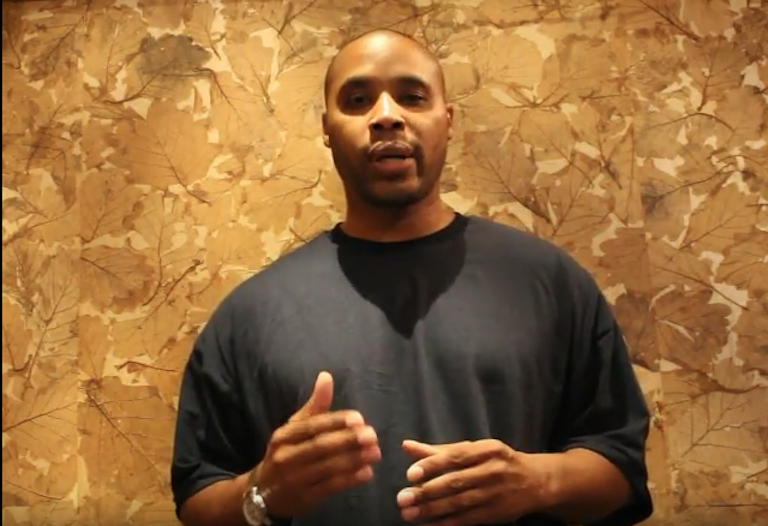



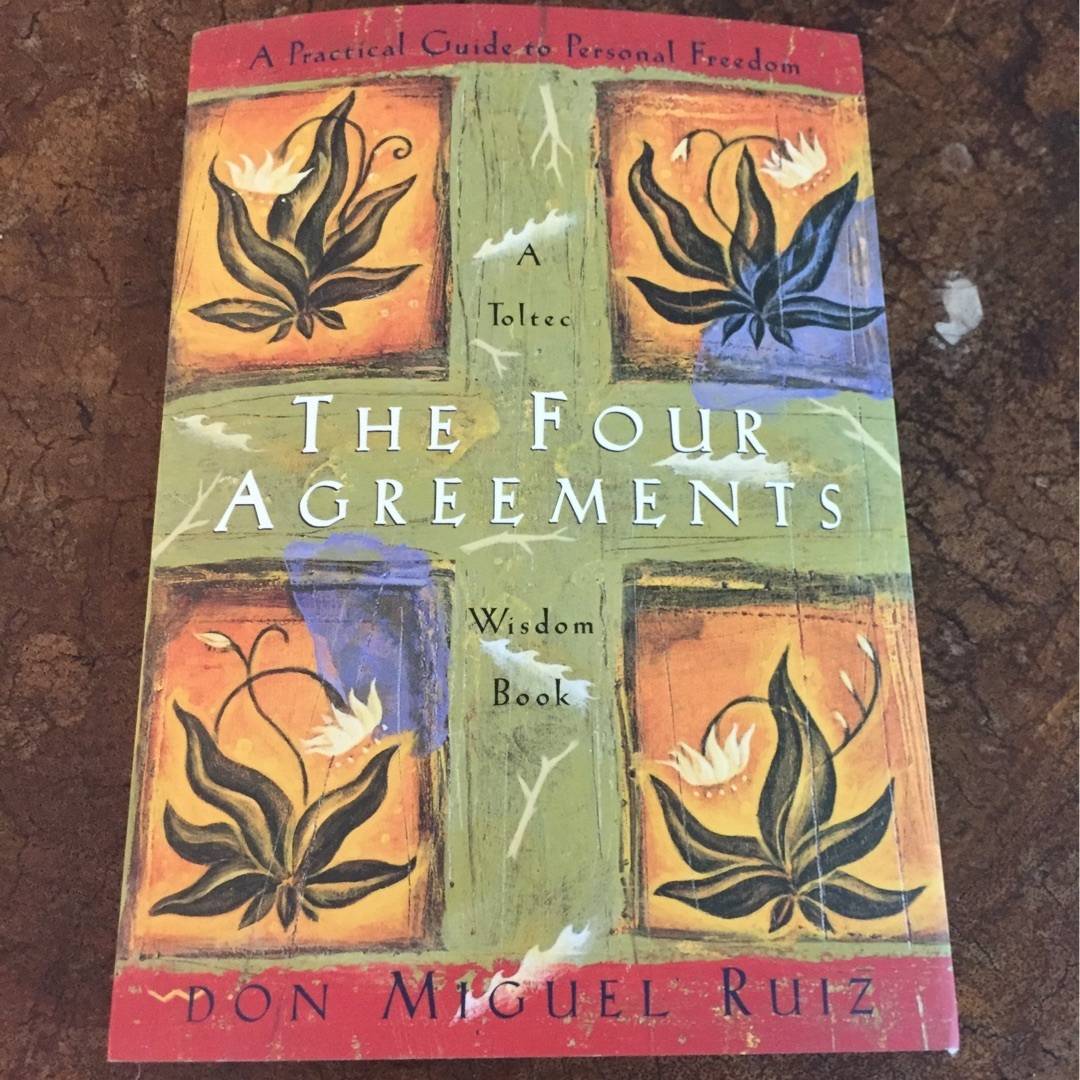
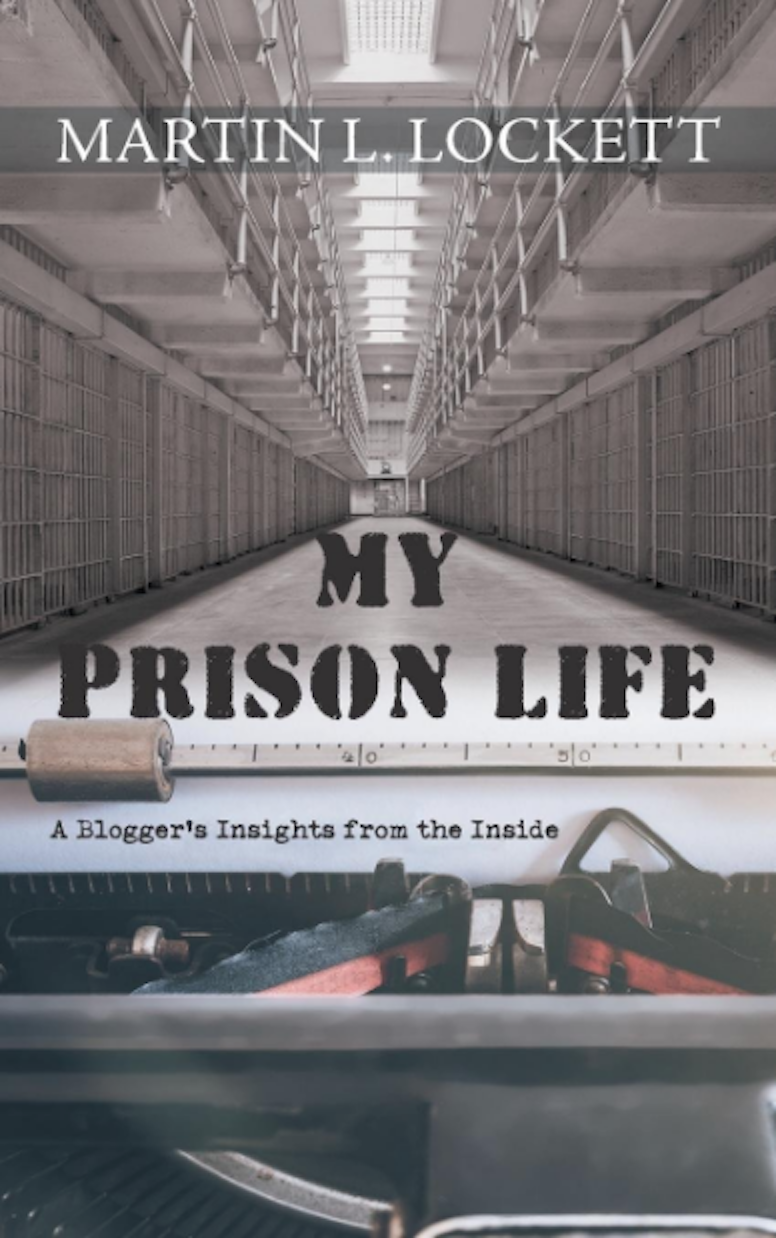
 In 2013
In 2013 











